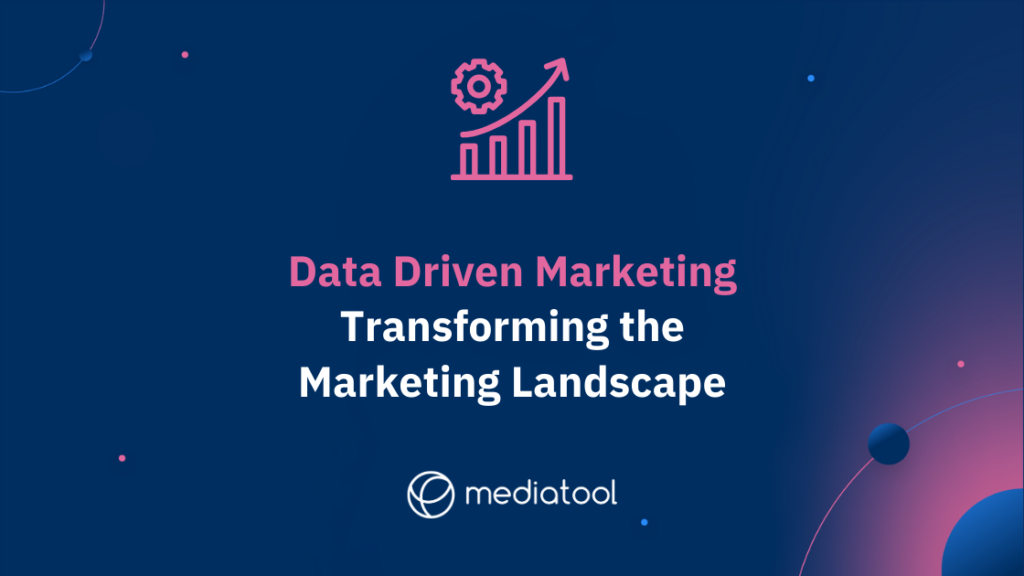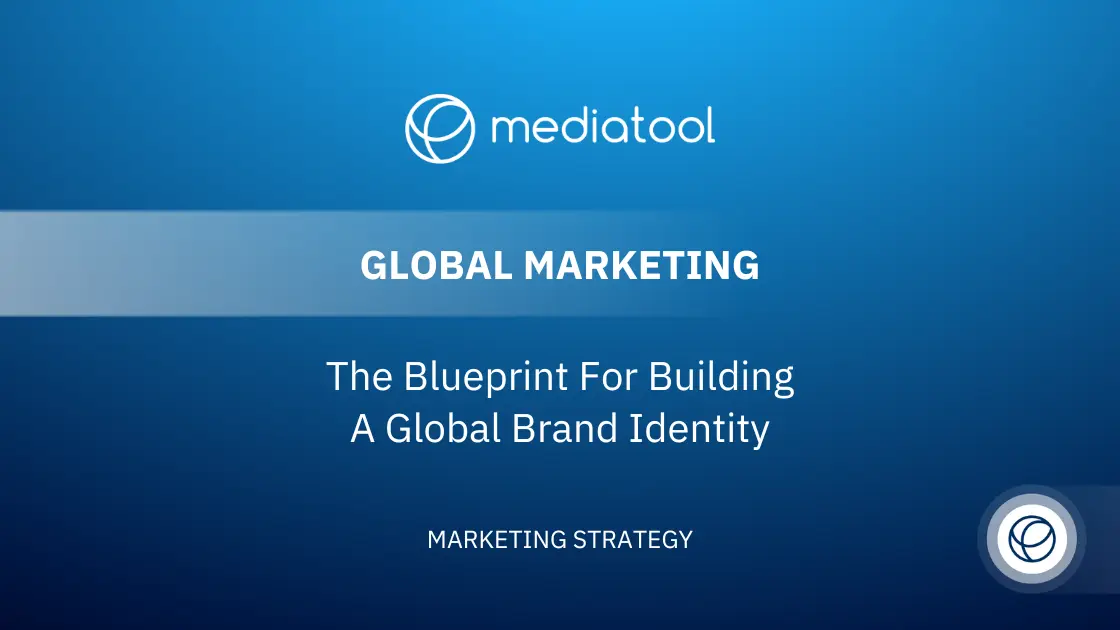In today’s marketing world, traditional methods are no longer enough to keep up with the changing demands of audiences.
Businesses are facing a challenge: effectively reaching and engaging their target customers.
This is where data-driven marketing comes into play (And no, it’s not just a buzzword).
It offers a new approach, turning the challenge of audience engagement into a clear opportunity for growth and success.
In this article, we’ll explore how data driven marketing is reshaping the marketing landscape, focusing on practical insights and strategies.
What Is Data-Driven Marketing?
Data driven marketing is the strategic process of using customer data to enhance marketing efforts. This approach involves collecting, analyzing, and applying data from various sources, including online behavior, purchase history, and customer interactions, to inform and optimize marketing decisions.
Definition and Overview
Data driven marketing is a comprehensive approach that integrates data analysis into every facet of marketing strategy. By leveraging marketing analytics and customer information, businesses develop data driven marketing strategies that are more precise and effective.
This practice allows for a better understanding of the target audience, leading to marketing campaigns that are more aligned with consumer needs and interests.
The Role of Customer Data
At the heart of data driven marketing is customer data. This includes demographic data, consumer interactions, and engagement patterns across different marketing channels. Through data collection and analysis, marketers gain valuable insights into customer behavior and preferences.
According to a survey of marketers, 41% identified data-driven marketing as most effective in personalization efforts, while 48% ranked it highest for mapping the customer experience or journey.
This enables them to create personalized messages and accurately segment their audience, enhancing the customer experience and increasing customer retention.
Technology in Data-Driven Marketing
Data driven marketing tools are essential for processing and interpreting the vast amount of data collected. Technologies like Google Analytics, CRM systems, and marketing dashboards play a pivotal role in data management and analysis.
These tools help marketing teams visualize key metrics and performance indicators, enabling informed decisions that drive marketing strategy based on real-time data. By utilizing these analytics tools, data driven marketers can effectively track marketing spend, optimize marketing channels, and adjust their marketing plan to achieve better conversion rates and ROI.
Data-Driven Marketing vs. Traditional Marketing
The contrast between data driven marketing and traditional marketing methods is stark. Traditional marketing relies on broader strategies and less specific audience targeting, often using media channels like direct mail. On the other hand, data driven marketing harnesses customer data and analytics tools to deliver tailored marketing messages to the right audience at the optimal time.
Comparative Analysis
Traditional marketing techniques, such as advertising through various media channels or direct mail campaigns, often aim to reach a wide audience with a general message. Data driven marketing, in contrast, utilizes customer interactions, demographic data, and consumer data to create a more targeted marketing strategy. This approach not only improves customer experience but also optimizes marketing spend and enhances marketing efforts.
Reflecting the shift towards data-driven methods, it’s forecasted that investments in data-driven marketing channels will surpass $36 billion in 2024, marking a significant growth of 13.9% compared to the previous year.
The Evolution of Marketing
The marketing landscape has shifted dramatically, moving from traditional methods that often involve educated guesses about consumer preferences to a data driven approach that relies on data analysis and marketing analytics. This evolution reflects the growing importance of understanding and meeting the specific needs of the target audience, leading to more effective marketing campaigns and strategies.
Examples in Action
Real-life examples of data driven marketing include personalized email campaigns that use purchase history and customer information to deliver relevant content, and targeted online advertising informed by browsing behavior and audience insights. These strategies help accurately segment the audience, ensuring that the right message reaches potential customers, thereby increasing conversion rates and customer retention.
The Advantages of Data-Driven Marketing

Data driven marketing brings a multitude of benefits, from improving efficiency and decision-making to enhancing customer experiences and boosting return on investment (ROI).
1. Boosting ROI
Data driven marketing significantly enhances ROI by enabling marketers to target the audience more accurately. By analyzing customer data and purchase history, businesses can tailor marketing messages and campaigns to meet the specific needs of their target audience. This personalized approach not only attracts new customers but also improves customer retention, leading to a higher ROI.
In a 2023 survey by HubSpot, 36% of marketers emphasized the importance of data in effectively reaching target audiences and gaining insights into customer behavior, while another 32% highlighted that investing in data significantly enhances the ROI in marketing.
2. Enhancing Customer Experience
The use of demographic data and consumer interactions in data driven marketing strategies allows for the creation of personalized customer experiences. This leads to higher engagement levels and increased customer satisfaction.
A significant 71% of consumers expect personalized interactions from companies, and notably, 76% experience frustration when this personalization is not met.
By understanding the customer journey through data analysis, businesses can deliver the right message through the most effective marketing channels, further enhancing the overall customer experience.
3. Gaining Insights and Predictions
Data driven marketing provides businesses with valuable insights into consumer behavior, market trends, and audience preferences. By collecting and analyzing data from various sources, businesses can make informed decisions and predict future market demands. This proactive approach helps in refining marketing strategies and staying ahead of the competition.
4. Improved Marketing Efficiency
By utilizing data driven marketing tools and analytics tools like Google Analytics, businesses can measure key metrics and performance indicators more accurately. This data collection and analysis lead to more efficient marketing efforts, as businesses can allocate marketing spend where it’s most effective, reducing waste and improving overall marketing efficiency.
5. Data-Driven Decision Making
Data driven marketing enables businesses to make data based decisions, leading to more successful marketing campaigns and strategies. With access to real-time data, marketing teams can quickly adapt their marketing plan, ensuring their approach remains relevant and up-to-date.
6. Increased Conversion Rates
The ability to accurately segment potential customers and deliver personalized messages significantly increases conversion rates. By using data driven strategies, businesses can identify patterns and optimize their content strategy to resonate with their audience, ultimately driving more conversions.
The Challenges in Data-Driven Marketing
While data driven marketing offers numerous advantages, it also comes with its own set of challenges, including data management, privacy concerns, technological complexity, and data interpretation.
Data Management and Privacy Concerns
Effective data management is crucial in data driven marketing, especially when it involves sensitive consumer data. Businesses must not only collect and store data responsibly but also navigate complex privacy laws to ensure ethical data practices.
This includes securing customer information and being transparent about data usage. Additionally, the challenge of breaking down data silos – isolated data repositories within an organization – can impede the effective use of data across different marketing teams.
Technological Complexity
The rapidly evolving landscape of data driven marketing tools and technologies can be overwhelming. Marketers need to stay up to date with the latest advertising tools, analytics tools, and data collection methods. This often requires specific skills and knowledge, particularly in understanding and utilizing data driven marketing strategies and marketing analytics effectively.
Data Interpretation
Interpreting the vast amounts of data collected is a significant challenge. Marketers must be adept at transforming this data into actionable insights and informed marketing strategies. The ability to accurately analyze data and apply it to create relevant content, personalized messages, and effective marketing campaigns is essential.
However, many marketers struggle with turning data into strategies that resonate with the target audience and drive desired outcomes.
Best Practices for Data-Driven Marketing
To excel in data driven marketing, businesses must adhere to a set of best practices that ensure the effective collection, analysis, and application of data.
Developing a Data-Driven Culture
Creating a data-driven culture within the organization is vital. This involves ensuring that all marketing decisions are based on data analysis and insights. It requires collaboration across marketing teams and departments to break down data silos, allowing for the free flow of information and unified marketing efforts.
Data driven marketers play a key role in fostering this culture, encouraging the use of data in every aspect of marketing strategy.
Continuous Learning and Adaptation
The digital marketing landscape is continuously evolving, making it essential for marketers to stay informed and adaptable. Keeping marketing strategies and campaigns up to date with the latest trends and technologies is crucial.
This includes staying abreast of new advertising tools, understanding changes in consumer behavior, and adapting marketing messages accordingly. Continuous learning ensures that marketing efforts remain effective and relevant.
Ethical Data Practices
Adhering to ethical data practices is fundamental. This means respecting customer privacy, responsibly managing customer data, and being transparent about how data is collected and used. Businesses must comply with privacy laws and regulations, ensuring that they not only protect customer information but also use it in a way that maintains consumer trust.
Leveraging Marketing Analytics
Utilizing marketing analytics tools effectively is key to gaining valuable insights from data. These tools help businesses track performance metrics, understand audience insights, and make informed decisions.
By analyzing data sources such as customer interactions, purchase history, and demographic data, businesses can refine their marketing strategies and improve the targeting of their marketing campaigns.
Personalizing Customer Experiences
Personalized messaging based on customer data enhances the customer experience and boosts engagement. Tailoring marketing messages to address the specific needs and preferences of the target audience leads to more effective marketing campaigns and higher conversion rates.
Integrating Data Across Channels
Effective data driven marketing involves integrating data across all marketing channels. This ensures a cohesive and consistent customer journey, enabling businesses to deliver the right message through the most effective channel. Marketers should utilize data driven marketing strategies to accurately segment their audience and target them with relevant content.
Developing a Data Driven Marketing Strategy

Crafting a successful data driven marketing strategy is key to leveraging the full potential of data in shaping effective marketing campaigns. This process involves several crucial steps, from setting clear goals to analyzing outcomes.
Setting Clear Objectives
To begin developing a data driven strategy, start by setting specific, measurable goals for your marketing campaign. These goals might include increasing online engagement, enhancing brand visibility, or driving sales growth. Clear objectives provide a roadmap for your strategy and guide the subsequent steps in the process.
Identifying Key Data Sources
Identifying and utilizing the right data sources is critical. This includes customer data, sales data, social media interactions, and website analytics. Collecting relevant data from these sources provides a comprehensive view of the customer journey and behavior.
Segmenting the Audience
Using the collected data, segment your target audience into distinct groups based on shared characteristics like demographic data, purchase history, and behavior patterns. This segmentation enables the creation of more personalized and effective marketing campaigns.
Choosing the Right Marketing Channels
Selecting the appropriate marketing channels is essential. Based on the data and audience insights, determine which channels – whether social media, email, or digital advertising – are most effective in reaching your target audience.
Crafting Personalized Campaigns
With the target audience and channels identified, the next step is to design personalized marketing campaigns. Use the insights gained from data analysis to create messages that resonate with each segment of your audience.
Implementing and Monitoring the Strategy
Implement your data driven marketing strategy and continuously monitor its performance. Utilize marketing analytics tools to track key metrics and assess the effectiveness of your campaigns.
Analyzing and Refining
Finally, analyze the outcomes and learn from the data. This analysis will reveal what’s working and what’s not, allowing you to refine your strategy for future campaigns. Continuous refinement based on data driven insights ensures your marketing efforts remain effective and responsive to changes in consumer behavior and market trends.
Conclusion
Data driven marketing stands as a transformative force in today’s marketing landscape. By harnessing the power of customer data, businesses can develop targeted marketing strategies, create personalized customer experiences, and make informed decisions that drive success.
The journey from traditional marketing to a data-centric approach marks a significant evolution, offering enhanced efficiency, better ROI, and deeper customer insights.
However, the path is not without its challenges. Navigating data management complexities, privacy concerns, technological advances, and the intricacies of data interpretation requires diligence and expertise. The key lies in developing a data-driven culture, staying agile in a rapidly evolving digital world, and adhering to ethical data practices.
As we embrace these best practices and continue to refine our data driven marketing strategies, the potential for growth and innovation in marketing is boundless. The future of marketing is data-driven, and those who master this approach will lead the way in creating more effective, customer-centric, and impactful marketing campaigns.





